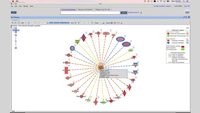QIAGEN IPA
Addressing the multiple testing problem in pathway analysis with QIAGEN Ingenuity Pathway Analysis
1,261 views
Pathway analysis is a powerful tool when looking at biological data. But how can you interpret the results if you don't fully understand the statistical results? In this brief video, we walk you through relevant statistical topics such as:
- What does multiple hypothesis testing mean?
- How do you control for multiple hypothesis testing when performing pathway analysis?
- Which corrected p-value method should you use?
- What does the p-value threshold mean in terms of your results?
- Where can I adjust the p-values of overlap in IPA?
Time stamp information:
0:00-1:15 Introduction
1:16-1:49 Example experiment
1:50-1:56 Definition of the null hypothesis for IPA analyses
1:57-5:28 P-values and the probability of false positives
5:29-7:26 The Family Wise Error Rate
7:27-8:13 The False Discovery Rate
8:14 13:52 How False Discovery Rate method works
13:53-16:64 The Benjamini-Hochberg method and an example of how it works
16:65-18:46 How to apply the Benjamini-Hochberg method in your IPA results
18:47-19:19 How to get more information about IPA
Visit QIAGEN IPA to learn more
Keywords: FDR, False Discovery Rate, Benjamini Hochberg, Benjamini Hochberg correction, Benjamini Hochberg FDR, IPA, Ingenuity Pathway Analysis, IPA tutorials, Ingenuity Pathway Analysis tutorials, QIAGEN, corrected p value, adjust p-value, multiple hypothesis testing, statistics, p-values
Related videos
QIAGEN IPA
Analyze, compare and contextualize your biological data with QIAGEN IPA
Discover why QIAGEN Ingenuity Pathway Analysis (IPA) is more than just...
QIAGEN IPA
Interpreting your comparison analyses results in IPA
Learn how to view and interpret your comparison analyses results in IPA and...
QIAGEN IPA
New user training: QIAGEN Ingenuity Pathway Analysis (IPA)
New user training: Large dataset analysis and knowledge base queries using...
QIAGEN IPA
Interpreting the Results of Your Phosphoproteomics Analysis in IPA
Learn how to view and interpret your Phosphoproteomics Analysis results in...



